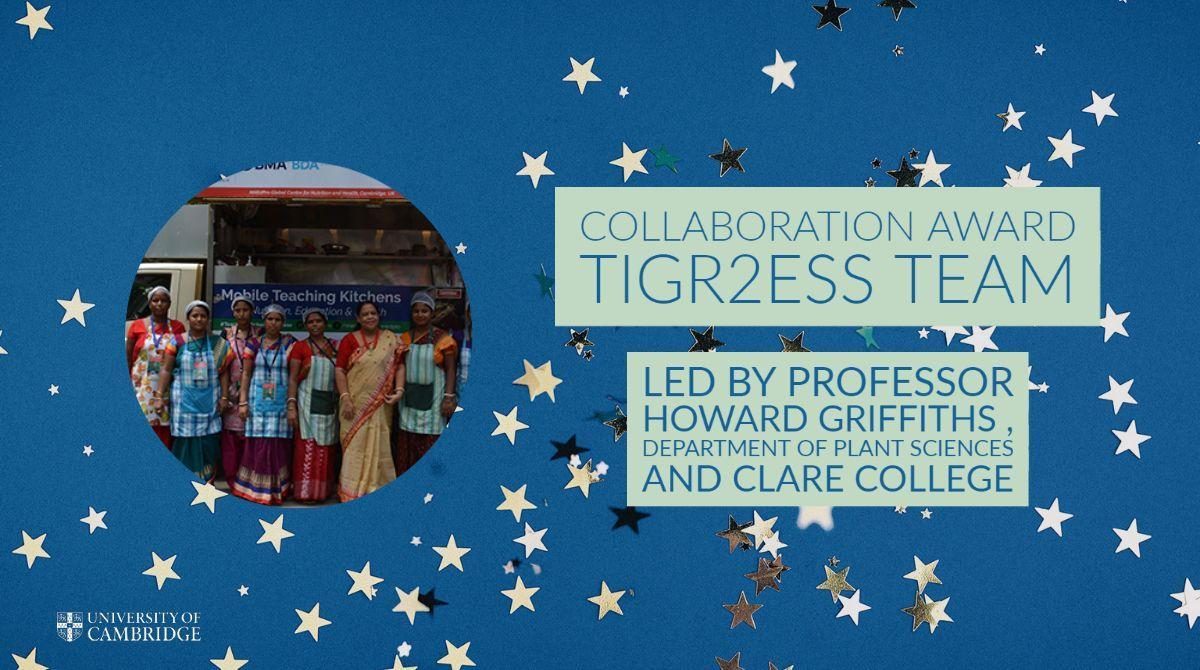
Submitted by K.L. Hlaba on Mon, 11/10/2021 - 11:15
The TIGR2ESS project, led by Professor Howard Griffiths, Head of the Department's Physiological Ecology Research Group, has won the Vice Chancellor's Collaboration Award. The Vice-Chancellor’s Research Impact and Engagement Awards recognise outstanding achievement, innovation and creativity in devising and implementing ambitious engagement and impact plans, which have the potential to create significant economic, social and cultural impact from, and engagement with, research.
Now in their sixth year, the awards include three categories Collaboration, Early Career Researcher and Established Academic, with each winner receiving a bursary to support their project. Vice-Chancellor Professor Stephen Toope remarked “we take pride in the outstanding research taking place across the University. Despite ongoing challenges, our academics have continued to undertake research with social, cultural and economic impact, locally and across the globe.”
The TIGR2ESS project brings together researchers, industry, government and NGOs in the UK and India in order to help rural communities in India to become agriculturally more sustainable. Choices about modern agricultural practices in India must reflect societal needs and the TIGR2ESS project is working to understand these and to translate research towards an outcome that is both technically and socially acceptable, and possible, for today's India.
Led by the University of Cambridge, the TIGR2ESS team comprises more than 20 organisations and more than 30 early career researchers. The team are working to find sustainable ways forward for Indian agriculture through engagement with rural communities, female empowerment, academic exchanges and policy translation. “The impact of this project is truly epic in scale and importance. The project has had a huge influence on people and communities in the developing world. This was demonstrated through the exemplary, and very large scale of engagement that has been undertaken, working in close collaboration with partners," said the Judges.
Lead on the project Professor Griffiths commented “Bringing partners from the Global Food Security steering committee together with our collaborators in India, allowed us to strengthen research capacity in both the UK and India. Through GCRF funding we have been able apply fundamental research underpinning crop sciences, manufacturing supply, archaeology and social sciences to address major food production, health, welfare and equality issues for rural communities in India. We are grateful for the huge support from key members of the Department and University research grant administration teams in dealing with the complex finance and contractual issues underpinning the success of this programme.”
Adapted from: https://www.plantsci.cam.ac.uk/news/tigr2ess-wins-vice-chancellors-colla...
Image: supplied by the University of Cambridge.
